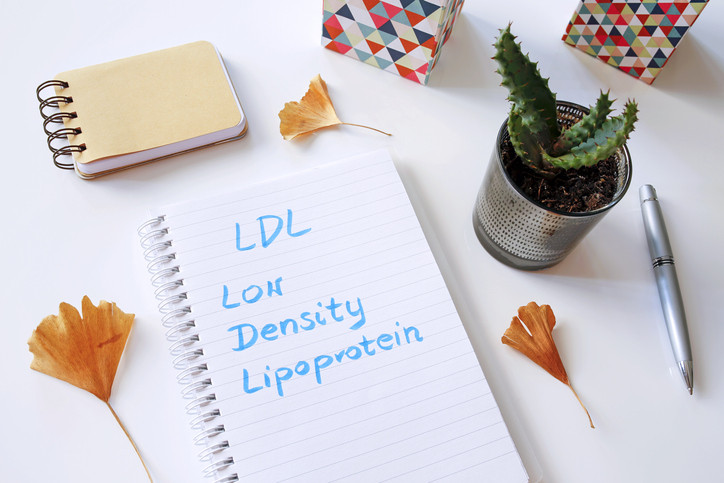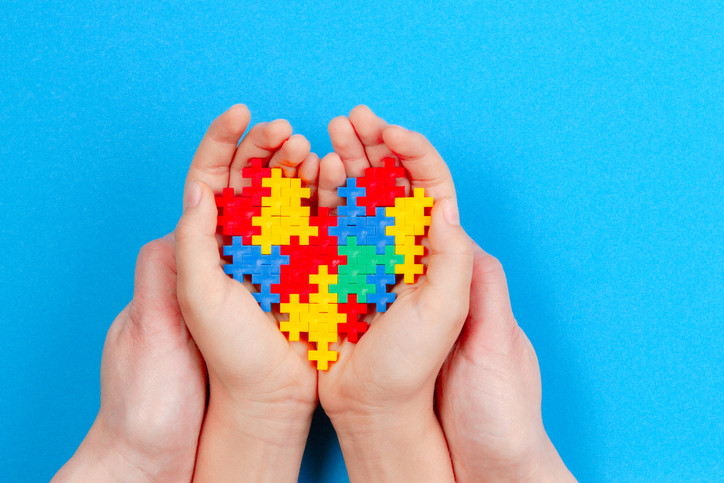
What are somatic workouts?

How to curb your stress eating

How to spot Parkinson’s disease symptoms

8 simple ways to reduce ultra-processed foods in your diet

Heart failure symptoms in women: How they’re different

GERD diet: Foods to avoid to reduce acid reflux

Strong is the new skinny

Everyday habits that sneakily weaken your bones

Don’t wait to get help for back pain

Correcting how you walk may ease osteoarthritis knee pain
Heart Health Archive
Articles
LDL cholesterol: How low can you (safely) go?
Lowering LDL cholesterol has been shown to lower risk of cardiovascular disease. Recent studies have suggested that more aggressive goals for LDL levels in people who already have CVD can decrease risk even further.
Congenital heart disease and autism: A possible link?
A recent study confirms that people born with congenital heart disease have a significantly greater risk of being diagnosed with an autism spectrum disorder. The research highlights the need for autism screening in children with CHD as early as possible.
The difference a healthy diet can make
Eating more unprocessed, plant-based foods is one of the best ways you can protect your heart.
What do you usually eat for breakfast? How about for lunch and dinner? These questions are standard fare during a consultation with Dr. Ron Blankstein, a preventive cardiologist at Harvard-affiliated Brigham and Women's Hospital. The answers help him tailor the dietary advice he gives, which can have a profound effect on the future health of his patients' hearts.
"Most people really aren't aware of the importance of a healthy diet, or they're confused about what they should be eating," says Dr. Blankstein. About five years ago, he revamped his own diet to follow what the current evidence suggests is the best way to avoid heart disease: a whole-food, plant-based style of eating. "I find that when I tell my patients I follow this diet myself, they're far more likely to buy into it," he says. (For an idea of what he typically eats, see "A day of plant-based meals.")
2020 vision: Cardiology trends to watch
Several new technologies and medications that may benefit the heart are moving into cardiology care.
As regular readers of the Heart Letter know, our features tend to focus on lifestyle advice and currently available therapies for heart disease. As the new decade begins, we're also looking to the future. Editor in Chief Dr. Deepak L. Bhatt selected five promising new developments in cardiovascular research that you may be hearing more about in the coming years.
1. Digital stethoscopes
First developed more than 200 years ago, the instrument doctors use to listen to the heart and lungs has undergone some high-tech improvements in recent years. The latest digital stethoscopes feature specialized microphones and sensors that filter, buffer, and amplify sounds from the heart. The sounds are then converted to a digital signal and sent wirelessly to a smartphone, where the patterns can be visualized and further analyzed. Some models are so sensitive they can detect turbulent blood flow in the arteries of the heart, possibly enabling doctors to detect coronary artery disease. Studies assessing that potential use are currently under way.
Born to move: Human hearts evolved to need exercise
An international study of apes and of people from different walks of life reveals how the human heart responds to physical activity.
A unique study that compared the hearts of African great apes, native Central Americans, and American athletes sheds new light on the evolution and adaptability of the human heart. But the findings also have a practical message.
"They reinforce the importance of regular brisk walking or jogging throughout life to stay healthy as you age," says the study's senior author Dr. Aaron L. Baggish, director of the cardiac performance lab at Harvard-affiliated Massachusetts General Hospital.
Great grains, super seeds
Editor's note: This year, we're highlighting grains and seeds on this page. Starting in February, we'll showcase a different grain or seed every month, with nutritional information and suggestions for adding these healthy foods into your diet. Here's some general background about these plant-based foods and why they're beneficial for cardiovascular health.
What, exactly, is a whole grain? Technically, they're dry, hard seeds of plants. Some are from grasses known as cereal grains, such as wheat, rice, corn, and oats. Others are from plants in different botanical families, such as quinoa, amaranth, and buckwheat, known as pseudo grains or pseudo cereals. A whole grain is one that contains all three layers of the grain kernel: the bran, the endosperm, and the germ.
Can music make workouts more fun and effective?
Research we're watching
Listening to up-tempo music during interval training may not only make your workout more enjoyable, but also elevate your performance, new research suggests.
Interval training involves short, repeated sessions of intense exercise separated by periods of less vigorous movement. It's an efficient but somewhat challenging strategy to improve fitness. However, music may make these workouts a bit easier, according to a small study in the November 2019 Psychology of Sport and Exercise.
How better blood pressure control may benefit the brain
Research we're watching
Treating high blood pressure may do more than prevent heart attacks and strokes. In older adults, intensive blood pressure lowering may also conserve brain function, according to a new study.
Published online Oct. 14, 2019, by the journal Circulation, the study included 199 adults ages 75 and older, all with a systolic blood pressure value (the first number in a reading) of 150 or higher. Their brain scans also showed lesions in the brain's white matter, which contains nerve fibers that send signals from one part of the brain to another. The lesions, which reflect damaged small blood vessels, have been linked to a propensity for thinking and memory problems. About two-thirds of people over age 75 have white matter lesions, as do most people over age 90.
Prolong your life with plant-based protein?
Research we're watching
Eating more plant-based protein may help you live longer, a new study suggests.
The study included 70,000 Japanese men and women ages 45 to 74 with no history of cancer, heart disease, or stroke. They filled out detailed diet questionnaires at the start of the study and again every five years.
Omega-3 supplements may improve heart health
In the journals
Research continues to explore the possible benefits of omega-3 fish oil supplements, especially for heart health, and a recent review of existing data suggests they may protect against heart attack and coronary artery disease.
Researchers from Harvard's T.H. Chan School of Public Health and Brigham and Women's Hospital examined 13 trials, involving almost 128,000 people, to look for any association between omega-3 supplements and the risk of heart attacks, strokes, coronary artery disease, and death from cardiovascular disease. Their results were published online Sept. 30, 2019, by the Journal of the American Heart Association.

What are somatic workouts?

How to curb your stress eating

How to spot Parkinson’s disease symptoms

8 simple ways to reduce ultra-processed foods in your diet

Heart failure symptoms in women: How they’re different

GERD diet: Foods to avoid to reduce acid reflux

Strong is the new skinny

Everyday habits that sneakily weaken your bones

Don’t wait to get help for back pain

Correcting how you walk may ease osteoarthritis knee pain
Free Healthbeat Signup
Get the latest in health news delivered to your inbox!
Sign Up











